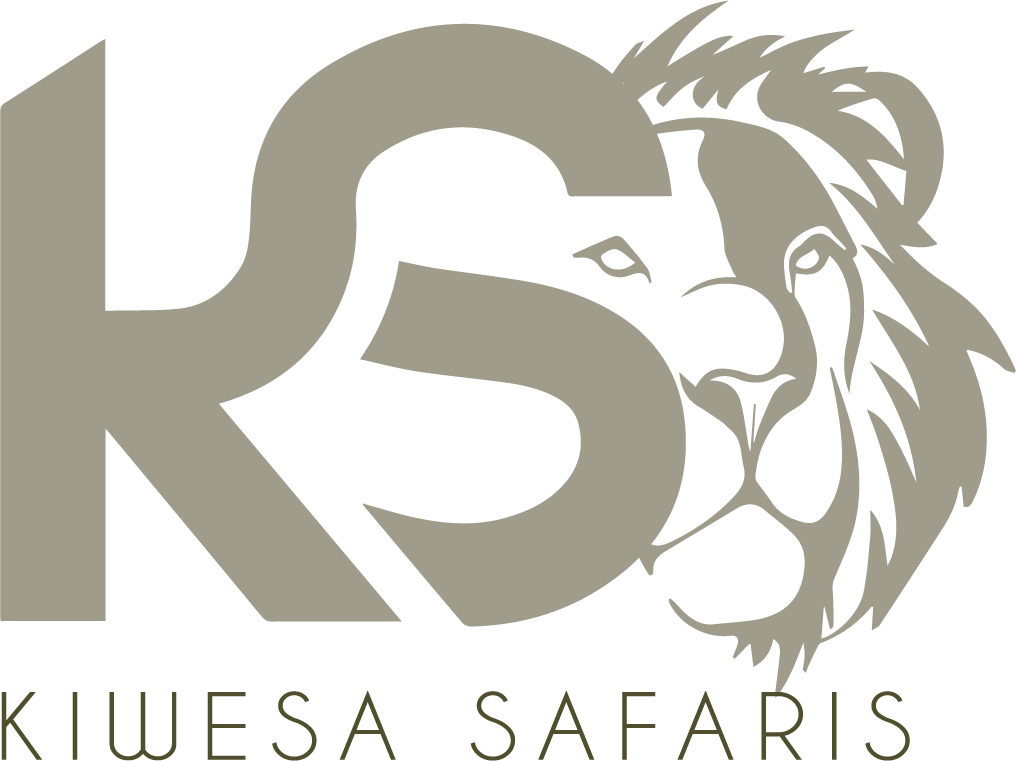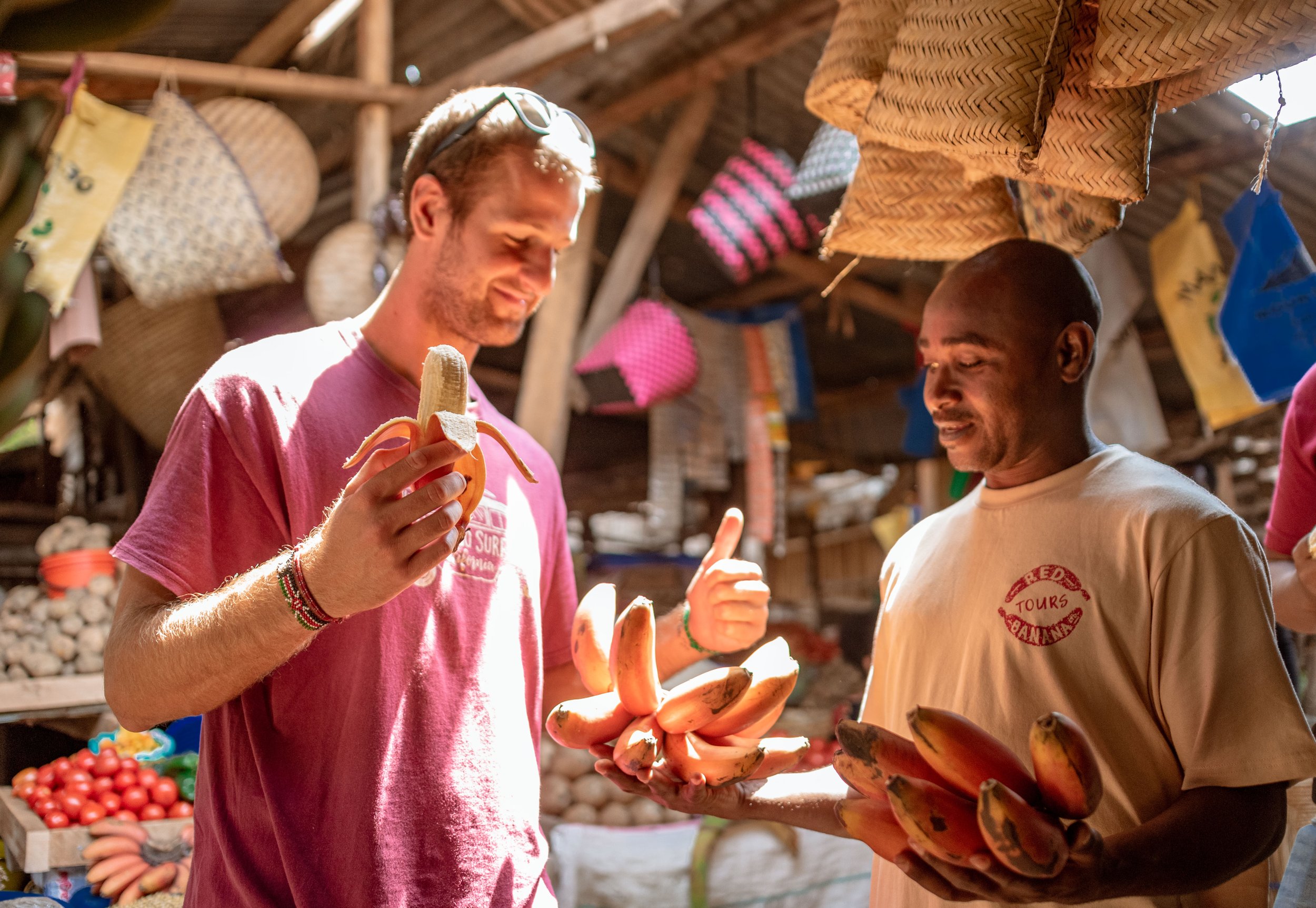What to expect during your village
A melting pot of cultures, Mto Wa Mbu is thought to be one of the only places in Tanzania where there are representatives from all 120 tribes living happily side by side. Although the name translates as ‘Mosquito River’, due to the permanent water source in the village, we fortunately didn’t see many mosquitoes.
Your guide is very likely to be from the village itself so you will have a unique opportunity to see the community through his eyes. Tours last around 2–3 hours, but are flexible. During your visit you’ll get a good feel for the social side of the village – the farms and the milling machines, the schools, markets and churches. Your guide will happily answer any questions you might have, and will help you to gain an understanding of the inner workings of this typical Tanzanian community.
You’ll likely start in the village banana plantation, where they grow more than 30 different varieties of bananas. As well as finding out how this staple fruit is grown, you’ll hear about the different uses of the plant as a whole, from food to materials for building and art.
Next you might visit a youth art project, and learn about the different painting styles and techniques. The artists are happy for you to ask questions and take photos, and while there are opportunities to purchase their artwork, which makes wonderful souvenirs, we were impressed that there was no hard sell or pressure to buy.
We then visited a wood workshop, where you can watch skilled members of the Makonde tribe carefully carving intricate figurines, masks and household objects. They’ll show you the different types of wood and finishings, and explain some of the historical and cultural meanings behind the carvings. You can even have a go at doing some carving yourself! Again, there are opportunities to purchase carvings should you wish, but with no hard sell or aggressive haggling, which we found very refreshing.
Moving on, you’ll come to a local ‘bar’ to try mbege, the traditional banana and millet beer that is brewed and drunk mainly by the Chagga tribe. The process of making this brew is quite labour intensive, and the beer is usually served in one large cup, which is passed around the group, and refilled as needed.
Your tour will finish in the bustling local market, where you can wander around stalls selling fruit and vegetables stalls, spices and meat. Your guide will stop and explain points of interest, and give you the opportunity to try and smell a variety of foods. A real treat for the senses!
End of the tour

